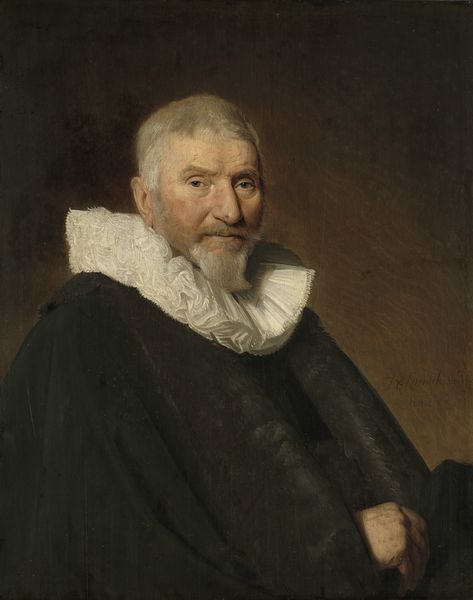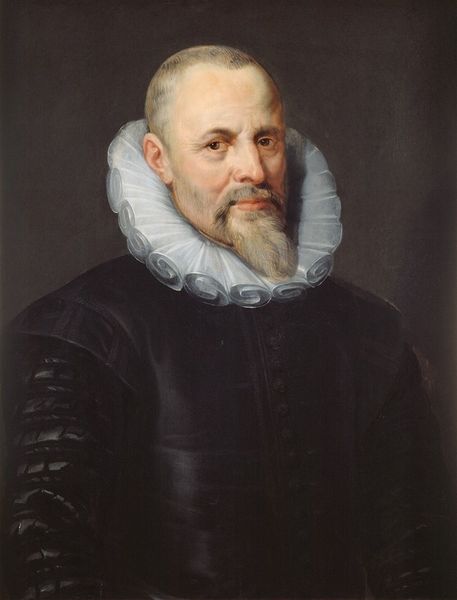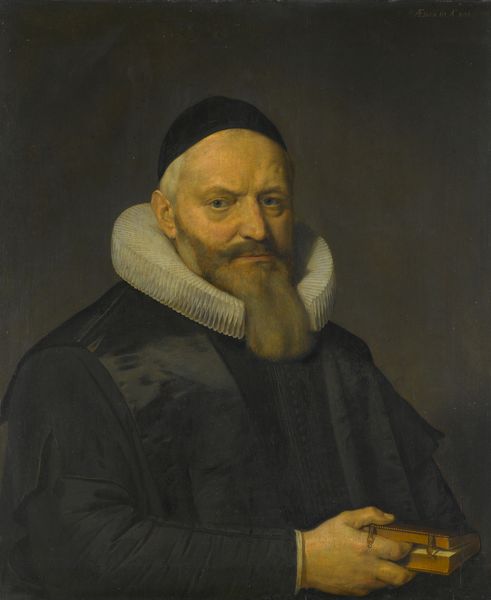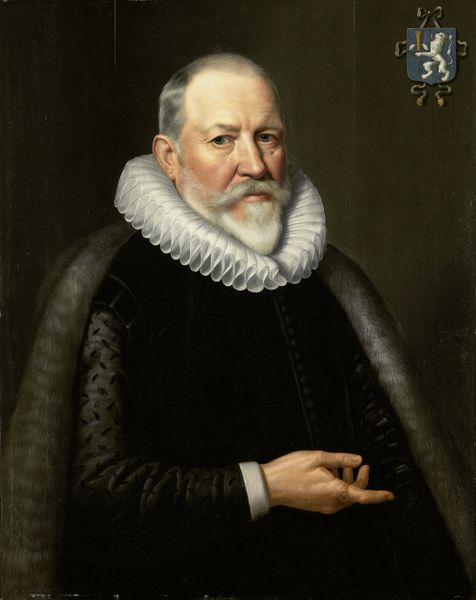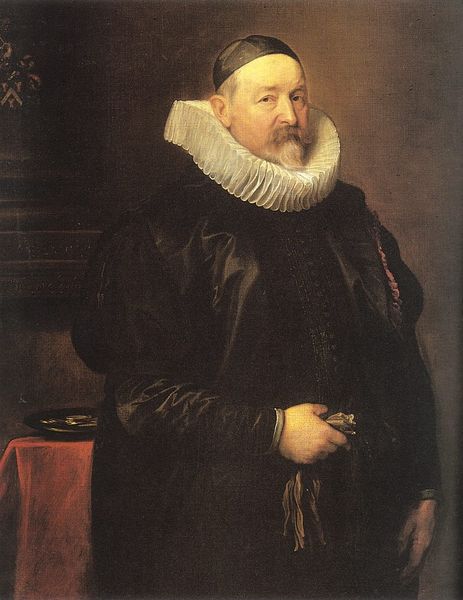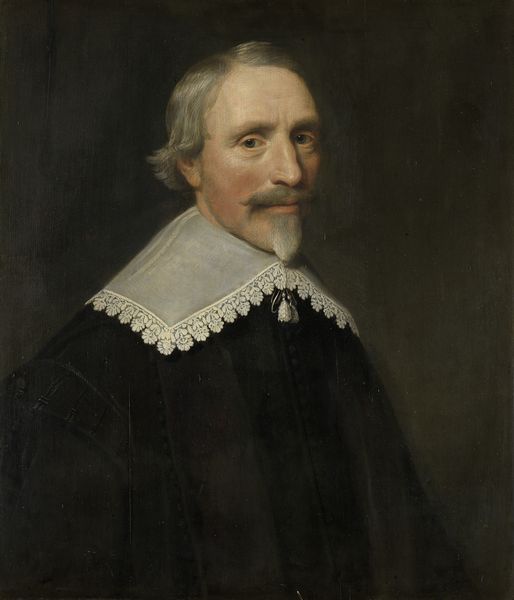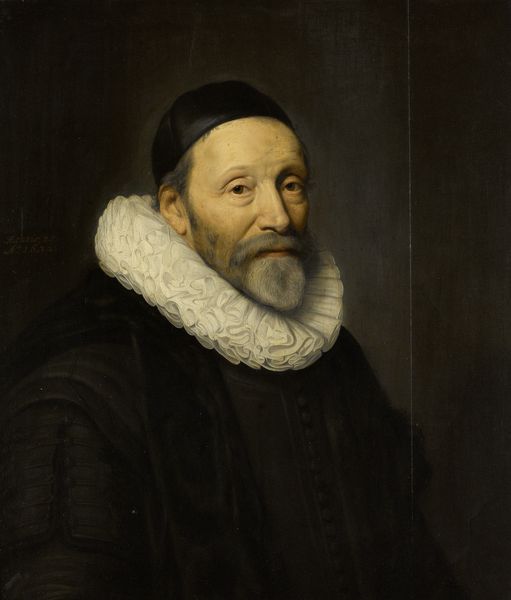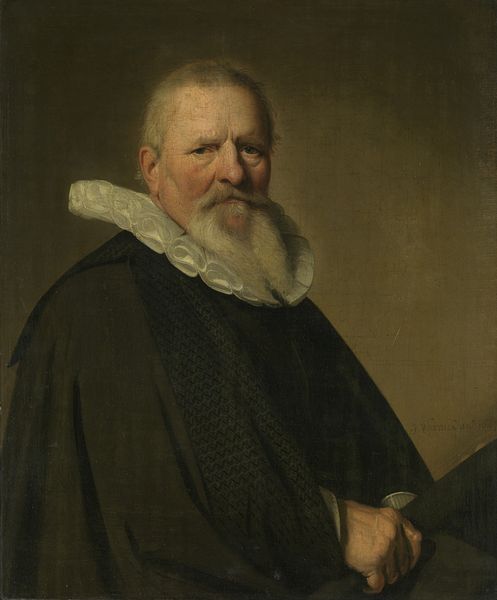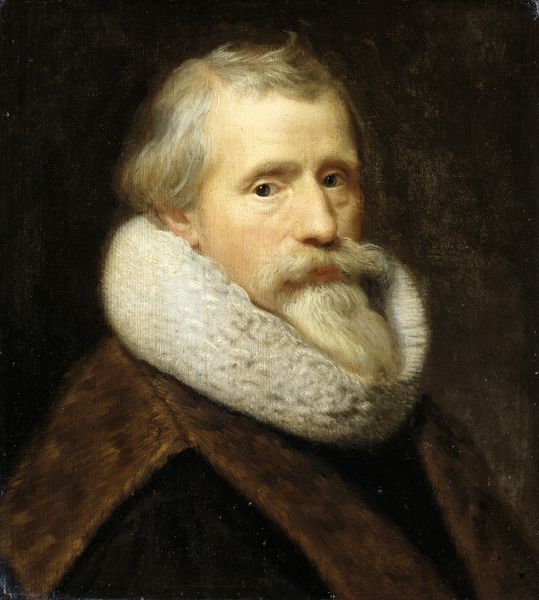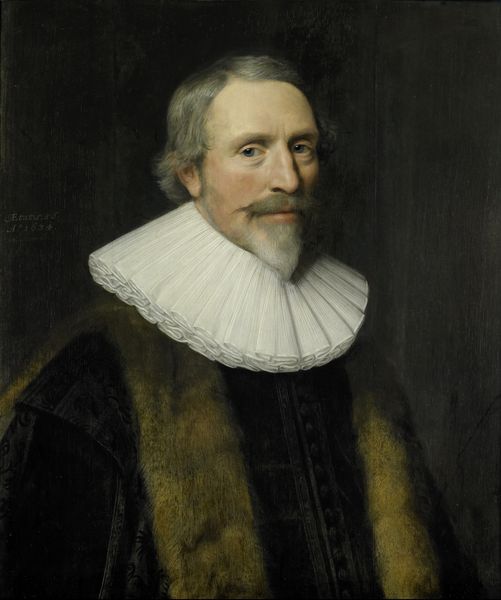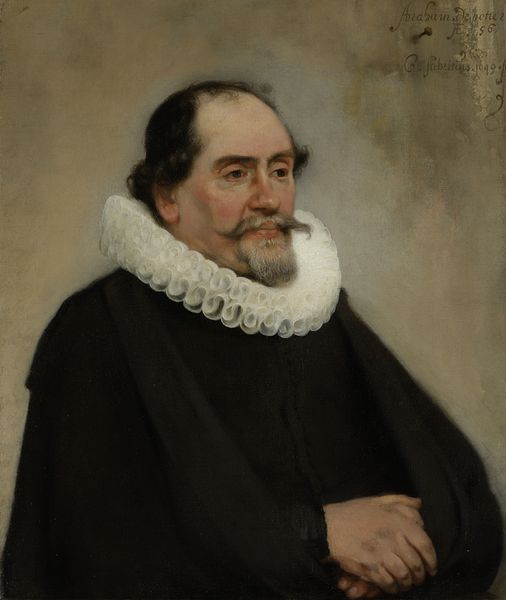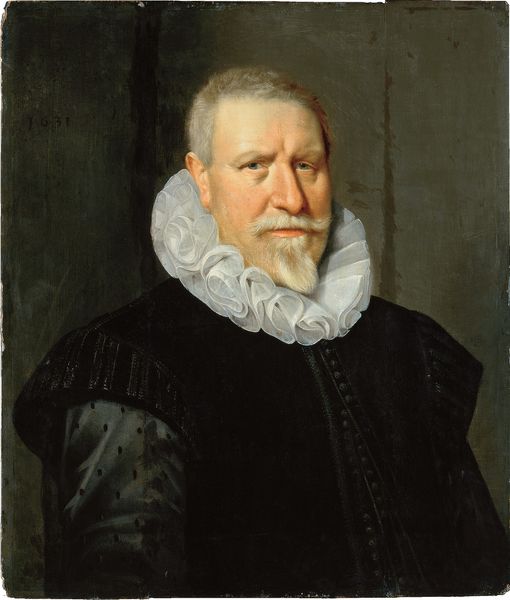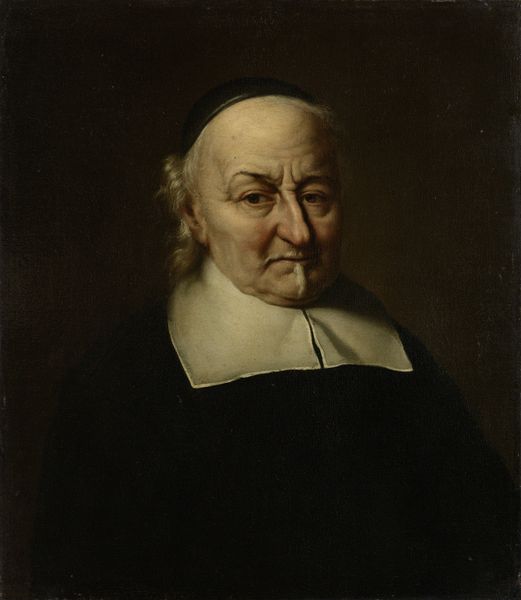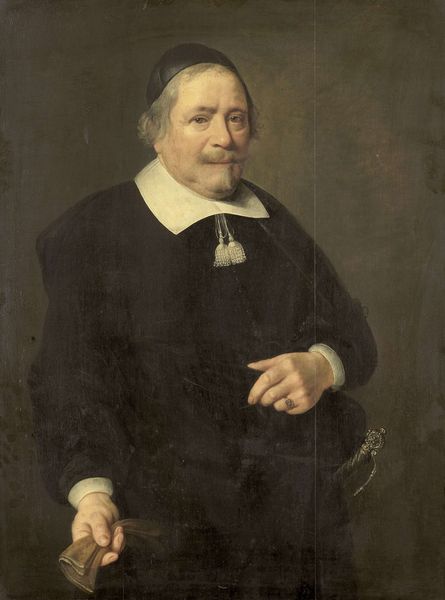
Portrait of a Man, probably Augustijn Wtenbogaert (1577-1655) c. 1643
0:00
0:00
govertflinck
Rijksmuseum
oil-paint
#
portrait
#
baroque
#
portrait image
#
dutch-golden-age
#
portrait
#
oil-paint
#
portrait subject
#
figuration
#
portrait reference
#
portrait head and shoulder
#
facial portrait
#
portrait art
#
fine art portrait
#
celebrity portrait
#
digital portrait
Dimensions: support height 74.2 cm, support width 60.4 cm, outer size depth 6.5 cm
Copyright: Rijks Museum: Open Domain
Govert Flinck painted this oil on canvas portrait of a man, probably Augustijn Wtenbogaert, sometime in the mid-17th century. The Dutch Golden Age saw an unprecedented demand for portraiture from the rising merchant class eager to display their wealth and status. Flinck, like many artists of his time, adopted a style influenced by Rembrandt, emphasizing dramatic lighting and realistic detail. The subject’s clothing and demeanor speak to his position within Dutch society, possibly as a religious figure or a member of the educated elite. It’s interesting to consider how portraiture served as a form of social currency, reinforcing existing hierarchies while also offering new avenues for social mobility. To fully understand the painting, we can delve into archival records, examining the social and economic structures of 17th-century Netherlands. By considering the institutional and cultural forces at play, we can gain a deeper appreciation of the painting’s historical significance.
Comments
No comments
Be the first to comment and join the conversation on the ultimate creative platform.
